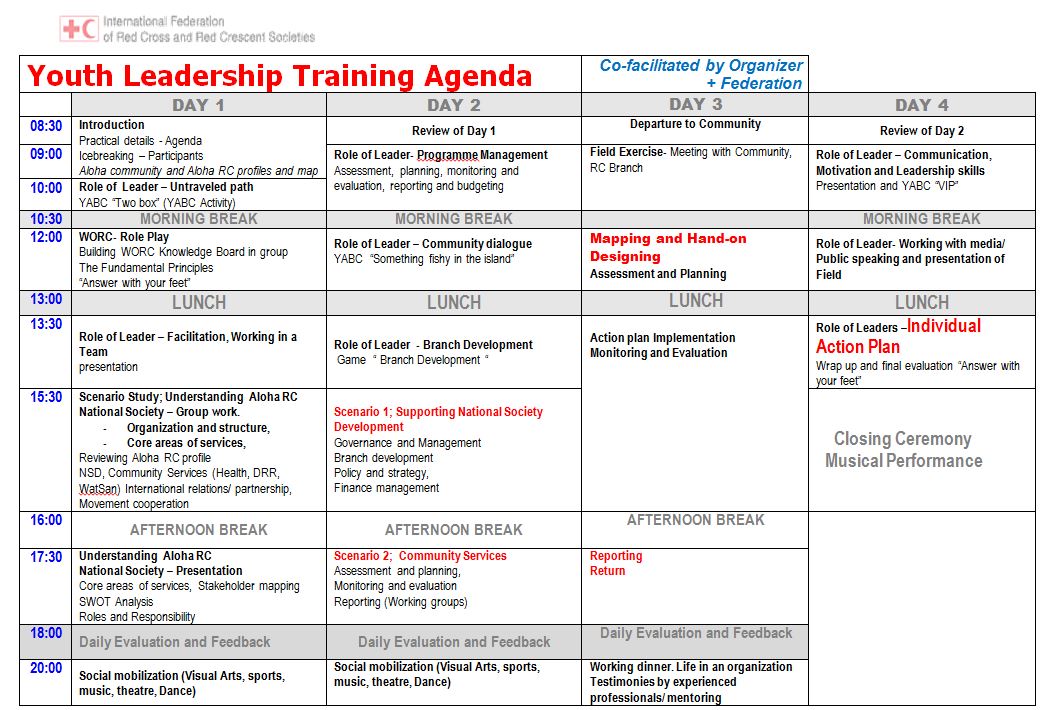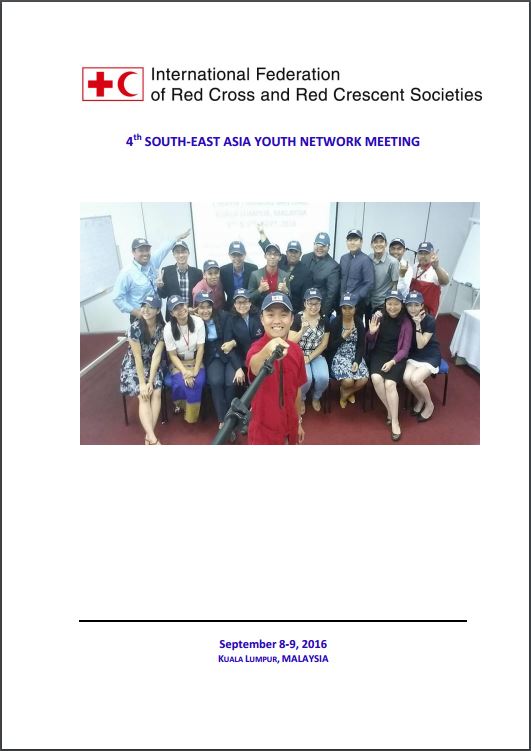YABC-National Training of Peer Educators | 25-30 October 2016 | Semarang, Indonesia
A national (Youth as) Agents of Behavioural Change ((Y)ABC) peer educator training (ToPE) was designed and proposed to 24 Volunteers and Staff members of the Indonesian Red Cross/Palang Merah Indonesia (PMI). The training was organized from the 25th to 30th of October in Semarang Indonesia, as a joint venture of PMI, Canadian Red Cross, IFRC Asia Pacific Regional Office in Kuala Lumpur and the IFRC Inclusion, Protection and Engagement Unit in Geneva.
The ToPE aimed at building PMI staff and volunteers’ capacity to use the (Y)ABC toolkit and integrate the initiative within existing programmes to further promote a culture of non-violence and peace amongst their peers and communities. Thanks to this event facilitated by (Y)ABC trainers from the Pakistan and Malaysian Red Crescent Societies, participants engaged in a self-reflection and self-transformation process, which resulted in their enhanced confidence, commitment and ability to act as ethical leaders in favour of respect for diversity, gender equality, intercultural dialogue, social inclusion and peace.
Expected outcomes for participants:
- Enhanced understanding and ability to describe and promote the main lines of thinking of the IFRC regarding humanitarian principles and values as well as the promotion of a culture of non-violence and peace, especially non-discrimination and respect for diversity, intercultural dialogue, social inclusion, gender, as well as violence prevention, mitigation and response;
- Capacity to use confidently and adapt the methodology and materials of the (Y)ABC toolkit to their context and target audience, while respecting the global coherence of the initiative;
- Deepened knowledge of the fundamental notions related to youth and adult learning, and more specifically peer education techniques, to be able to take them into account and put them into practice when conducting sessions related to the (Y)ABC initiative in their National Society and/or respective communities;
- Acquisition and application of life skills (i.e. active listening, empathy, critical thinking, dropping bias, non-judgement, non-violent communication, collaborative negotiation, and mediation) and techniques to strengthen their personal resilience and operate from inner peace1 (e.g. Qi-Gong) in their daily life and Red Cross Red Crescent work.
The training was attended by PMI staff and volunteers. 24 participants from 7 provincial branches and the national headquarters (15 female and 9 male, aged between 17 and 30 years’ old)
Related documents:
- Training concept note
- Training report (including agenda, participant list, and PMI YABC action plan 2018-2019)
![]()
16 Days of Activism Against Gender-Based Violence | 25 November – 9 December 2017 | Cambodia
Several reports show that Cambodian has seen a gradual decrease of domestic violence against women and girls since 2000. However, according to Cambodia Gender Assessment in 2014, there are still number of challenges facing the country in its effort to end gender-based violence (GDV), including but not limited to:
- Growing number of reports on rape and sexual violence in the family;
- Sexual harassment at workplaces and in communities;
- Limited access to social and legal support services to survivors.
Between 25 November to 9 December 2017, CRC conducted activities under the campaign “16 Days of Activism Against Gender-Based Violence” on the topic “Leave No One Behind – End Violence Against Women and Girls.” The expected results and measurements for success include:
- At least 30 Red Cross Youths attending the half-day workshop on GBV.
- At least 750 youth from four universities attending GBV awareness
- At least 200 youth, Red Cross staff, and volunteers attending the 16 Days Campaign for the elimination of violence against women at the Cambodian Red Cross National Head Quarter
- Number or people around country to receive GBV information through this media National TV, Newspapers
Number of activities were conducted at four universities, with 872 students participated, from 25 November to 7 December. The activities included a mix of brainstorming, plenary discussion, presentation, and Q&A facilitated by the resource persons from the Ministry of Women Affairs.
On 9 December, CRC conducted a special event at the CRC National Head Quarter with 200 participants including representatives from the Ministry of Women Affairs, CRC leaders, staff, Red Cross youth and Red Cross youth advisors, deans and directors of universities, students, Red Cross partners, and other stakeholders).
Total number of participants attending in the 16 Days Activism was 1,072 participants, of which about 40% are female.
Supporting Documents:
![]()
SEAYN 4th Annual Meeting Report
Action plan 2016-2017 was developed with four categories:
- Advocacy
- Youth and volunteer management
- Youth empowerment Programme
- Peer to Peer support, Partnership and Fundraising.
The SEAYN Chairmanship was then handed over to the Philippine RC and new coordination team was nominated with Singapore RC as Deputy Chair and CVTL as Officer. All members recognised that the sustainability of the network depends on their engagement, commitment and their service delivery into community safety and resilience.
![]()




